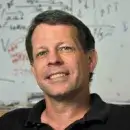
Edward Francis DeLong
Edward F. DeLong is a Professor of Oceanography at the University of Hawai’a Manoa; Co-Director of the Center for Microbial Oceanography: Research and Education (C-MORE); and Co-Director of the Simons Collaboration on Ocean Processes and Ecology. DeLong has spent most of his career developing molecular biological and genomic approaches to study naturally occurring microbial communities in the ocean. In the course of developing these new approaches DeLong and collaborators have made fundamental discoveries about the nature and properties of microbial life in the sea. DeLong’s discoveries include the recognition of two new types of abundant marine Archaea in coastal marine habitats, the identification of methane-consuming Archaea in anoxic marine sediments, and characterization of the first known light-driven ion pumps (proteorhodopsins) in marine bacteria. Currently DeLong is applying genomics and systems biology approaches to study microbial community dynamics in the sea, and elucidating the various ways that marine microbes garner energy from sunlight using opsin-based photosystems. His lab focuses on five research areas: (1) high-resolution temporal dynamics of microbial communities in situ, using robotic underwater sampling, RNA sequencing, and gene expression analyses; (2) four dimensional spatio-temporal mapping of planktonic marine microbial genes, genomes, transcriptomes and taxa; (3) microbial community structure and function on sinking particles in the ocean’s interior; (4) the biochemistry, biogeochemistry and ecology of high molecular weight dissolved organic matter degradation in the open ocean; and (5) the distribution and functional diversity of opsin-mediated, light-driven energy generation in marine bacteria. DeLong is a Fellow in the the American Academy of Microbiology, the U. S. National Academy of Science, and the American Association for the Advancement of Science, in addition to his American Academy of Arts and Sciences membership. His honors include the Vladimir Ivanovich Vernadsky Medal of the European Geosciences Union, the Proctor and Gamble Award in Applied and Environmental Microbiology, the American Society for Microbiology D.C. White Research and Mentoring Award, and the U.C. Davis College of Biological Sciences Outstanding Alumni Award. His numerous publications appear in Cell, Nature, Science, and Proceedings of the National Academy of Sciences of the United States of America.